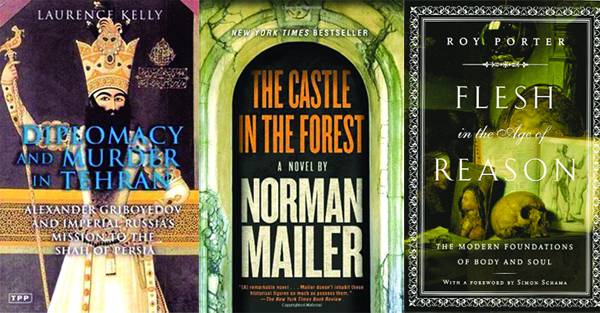
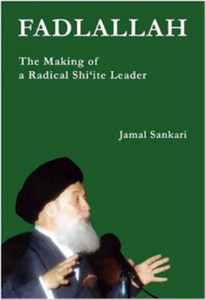
Fadlallah: The Making of a Radical Shi’ite Leader
Jamal Sankari
Saki Books (hardcover), 2005
PRs 2330
This book traces the career trajectory of one of the most prominent figures in modern political Islam, against a background of cultural, political and economic upheaval in Iran, Iraq, and Lebanon. From Sayyid Hussein Fadlallah’s early intellectual development through his scholastic and political engagements, Jamal Sankari assesses the cleric’s impact on both the resistance group Hizbullah and on the region as a whole.?Demonised by the West, and denounced by Muslim conservatives for his ‘moderation’ and ‘innovation’, Fadlallah was one of the first Islamic figures to condemn the events of 11 September while at the same time remaining amongst the harshest, most relentless critics of the US role in the Middle East.?Fadlallah is regarded by many as the spiritual leader of Hizbullah. But his emergence as one of the world’s pre-eminent Islamists would have taken place even without Hizbullah; his insistence on cross-denominational dialogue across the Arab and Muslim world has inspired many followers and emulators. Sankari provides extensive insight into the enigmatic, mulit-faceted personality of this extraordinary religious-political leader.
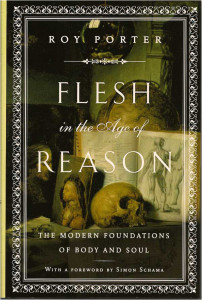
Flesh in the Age of Reason
Roy Porter
W. W. Norton & Company (hardcover), 2004
PRs 1850
The distinguished historian died shortly after completing this sequel to his monumental Enlightenment (2000). Flesh examines “the triangle of the moral, the material and the medical” in 18th-century Britain. The Reformation’s ouster of church dogma brought with it a wave of speculation about the nature of physical and rational being-most importantly Locke’s innovative concept of conscious selfhood that dispensed with the immortal soul. In its place arose a dialectic between internal and external identity that focused on life before rather than after death, a conception of self that has remained a foundation of Western thought. Porter considers the many questions and clashes involved in that conception in what he calls a “gallery of contrasting yet interlocking studies” divided into sections. The first concentrates on the mental and moral self as advanced by such influential literary figures as Shaftesbury, Swift and Johnson; another takes up the physical and social self in contemporary preoccupations with mortality, health, manners, race and madness. Most of these discussions feature significant contemporary figures, often in unfamiliar guises: Dr Johnson on depression, Adam Smith on astronomy, Byron on the state of his teeth. Others are memorable but unremembered, like George Cheyne, a proponent of healthy diet whose own weight at one time reached more than 470 pounds. These studies of individuals are augmented with a wealth of information about health trends, child-rearing fads and hygiene scares that bear a remarkable resemblance to our own times. The final section pursues the self into the Romantic era, when social science and poetics “smudged” the problematic boundaries between inner and outer being with new distinctions between individual and collective experience. Porter’s theme is the puritan doctrine of human perfectibility and progressive economic, social and somatic models it spawned. With humor and enthusiasm, he combines a terrific fund of scholarship, canny observation and intelligent synthesis.
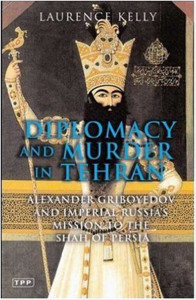
Diplomacy and Murder in Tehran
Laurence Kelly
Tauris Parke Paperbacks (paperback), 2006
PRs 2288
In this first biography of Alexander Griboyedov in English, Laurence Kelly paints a vivid picture of a man of remarkable literary talent and diplomatic gifts that were nevertheless overshadowed by ill-fortune. Involved in the 1825 Decembrist plot to overthrow the Tsarist state and the mission to further Russia’s expansionist agenda in the Caucasus, the famous writer was eventually murdered by zealous mobs in Tehran. This book makes an invaluable contribution to the diplomatic history of Russia, the Caucasus and Iran at the same time illuminating the life and works of a writer who was among nineteenth-century Russia’s most respected and prominent writers.

The Castle In The Forest
Norman Mailer
Random House (paperback), 2007
PRs 2280
Who was Adolf Hitler? It’s a question writers have been trying to answer for more than sixty years. But after thousands of biographies, histories, novels, and films, many fundamental questions remain: How do we explain Hitler’s hatred? Where did it come from? Could it happen again? Norman Mailer sets out to respond to these and other crucial aspects of Hitler’s personality in his compulsively readable new novel. Spanning three generations, and a hundred years of history, the book brings to life the Hitler’s grandparents, parents, aunts, uncles, siblings, and, ultimately, young Adolf - in an energetic and wildly entertaining family saga. Mailer recounts the marriages, incestuous couplings, estrangements, afflictions, and deaths that lead to the birth of young Adolf in 1889. Told in the voice of a mysterious (and unreliable) narrator, this playful yet profound novel blends fact and fiction in a stirring family tale that will cause the reader to re- examine his preconceived ideas about Hitler and the nature of his evil.
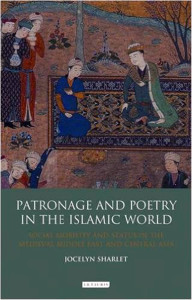
Patronage and Poetry in the Islamic World
Jocelyn Sharlet
IB Tauras (hardcover), 2011
PRs 11355
This is a work of very wide, very thorough and very impressive scholarship. Dr Sharlet’s use of primary sources is exemplary in its scope and in its ability to identify what is apposite to illustrate a given argument. Work on praise poetry is the great lacuna of modern scholarship on Middle Eastern medieval verse; it is an absolutely crucial genre (and indeed much of the rhetoric of other poetic genres in these cultures demonstrably derives from the rhetoric of praise poetry), and yet there are virtually no good discussions of what poets in this genre did, or how and why they did it. Dr Sharlet’s book is easily the most important contribution to our understanding of this important genre that I am aware of. Unlike many of her predecessors, who have studied patronage in the context of panegyric poetry or in passing as part of their analysis of narrative texts, in this book Sharlet undertakes to dissect the interplay of risk and success as the stuff not only of sponsored literature within a literary patronage system, but also as the instantiation of a form of social order. This is an ambitious, original, and important text - one that will set the bar higher for all who work in medieval Arabic and Persian literature.

